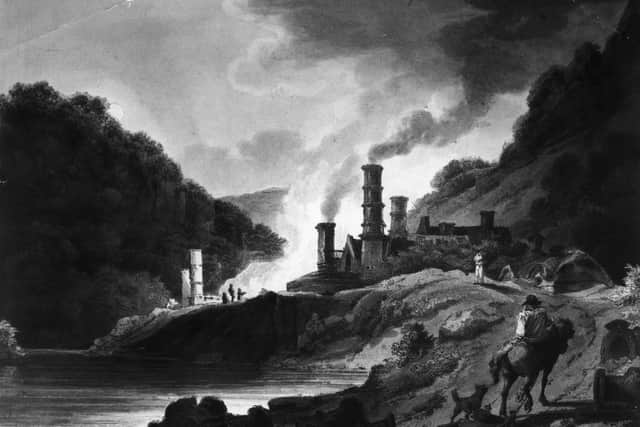Climate change 'reparations' have big implications. There's a lot more to apologise for – Brian Wilson


The argument doing the rounds at COP27 has the superficial attraction of redressing historic injustice. Developed countries produced the vast majority of global carbon emissions while poorer ones in the southern hemisphere are paying a disproportionate price for climate change.
In the case of the UK, this means an open-ended bill as an apology for the Industrial Revolution in which we were rather prominent. Scotland, by this reasoning, will bear a proportionately heavy burden of guilt since our industrial history is built on a coal and steel economy.
Advertisement
Hide AdAdvertisement
Hide AdPresumably on that basis, Nicola Sturgeon has offered up £5 million to kick off the reparations fund. Whether this is regarded as a saintly, world-leading initiative or a piece of pointless virtue signalling with other people’s money depends on one’s viewpoint.
According to the Scottish Government, the money will “enable communities to take direct action to address the impacts of loss and damage” including “slow-onset effects, such as sea level rise and non-economic effects, such as the loss of cultural identity”.
The certainty is that £5 million won’t go very far towards meeting these aims and there are plenty victims of economic injustice in Scotland who might appreciate some recompense this winter. Every £5 million should be used to best effect and not in return for a headline.
If the Scottish Government wishes to expand its remit into overseas aid then that is its entitlement. There could be a consensus around targeted, well-monitored partnerships for specific purposes as well as making our contribution to overseas aid through a UK commitment which should be restored to 0.7 per cent of GDP.
The concept of reparations, however, takes us into a whole different stratosphere which is why it needs to be thought through before being signed up for. If Scotland is going out on a limb to compensate global victims of historic Scottish offences, then Ms Sturgeon will require a very large kitty.
Why stop at 19th and 20th century Scottish industrialists whose mines and factories belched pollution? There are also Scottish slave merchants to be apologised for; Scots by the thousand who were at the sharp exploitative end of Empire; Scottish traders who turned a significant part of the Chinese population into opium addicts… and that’s before we get to the missionaries.
It's called history and, personally, I don’t feel the least responsible for it. The people involved did not act as Scots (or English, or French) but as capitalists and imperialists. The wealth they accumulated was not for the benefit of society but for the enrichment of the few.
There is no corporate, national responsibility for the legacies they bequeathed though there is certainly a duty to do better in the present and future. That is where politics and resources should be concentrated, at home as well as abroad. “Reparations” are a distraction from current responsibilities.
Advertisement
Hide AdAdvertisement
Hide AdNeither do we need to go to the southern hemisphere to find the undesirable legacies. The wealth derived from the activities we are now apologising to the world for were used at home to develop a deeply unequal society. The symptoms are still all around us, not least in Scotland’s unique maldistribution of land ownership which is a largely untouched relic of the 19th century.
I find it deeply ironic that, in the name of environmental virtue, the Scottish Government is shelling out hundreds of millions to landowning dynasties, to restore the land they degraded in the first place. Would it not make sense for “reparations” to begin at home, with landowners rather than taxpayers footing that bill? Far from reparations, another racket has been created which is actually driving up land values.
The best that we can do in our allotted years is to contribute to a fairer world and social justice in our own society. These are big enough tasks to keep us going and if we want to redress the wrongs of history, there are plenty of them on our own doorsteps.
Comments
Want to join the conversation? Please or to comment on this article.
